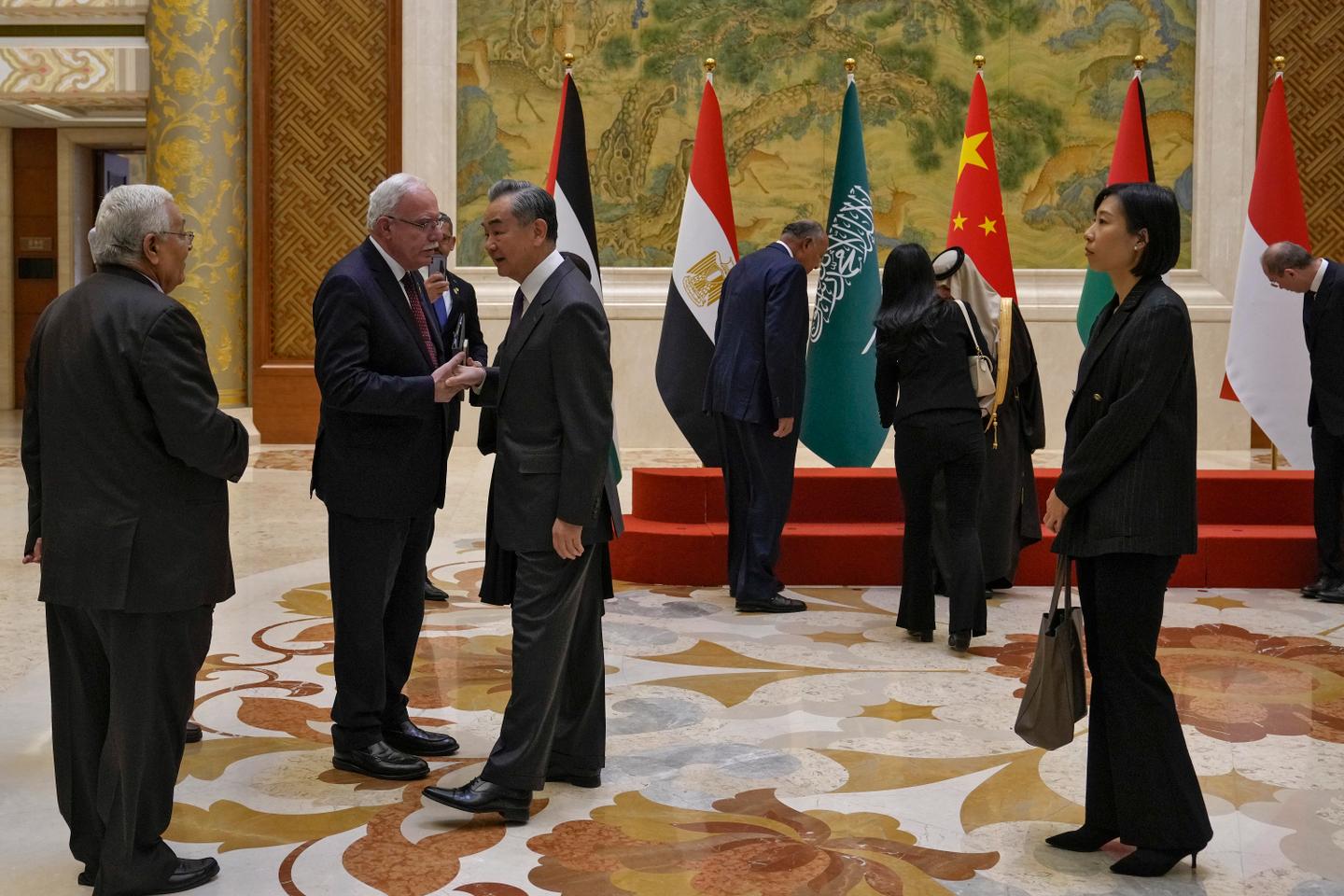


To convince the international community of the need to impose a ceasefire in the Gaza Strip, a delegation of Arab and Muslim diplomats began a tour of the five permanent members of the UN Security Council in Beijing on Monday, November 20. They came to China to gather support against Washington, which continues to refuse to urge its ally Israel to end its war against Hamas. They encouraged Beijing, whose influence is growing in the Middle East, to play a leading role in de-escalating and finding a political solution to the Israeli-Palestinian conflict.
"Let us work together to quickly cool down the situation in Gaza and restore peace in the Middle East as soon as possible," said Wang Yi, China's foreign minister, on Monday, in an address to his counterparts from Saudi Arabia, Jordan, Egypt, Indonesia, Palestine, and the secretary general of the Organization of Islamic Cooperation (OIC). "The situation in Gaza affects all countries around the world, questioning the human sense of right and wrong and humanity's bottom line," added Wang. "The international community must act urgently, taking effective measures to prevent this tragedy from spreading."
Alongside him, Prince Faisal Ben Farhan welcomed the UN Security Council resolution calling for humanitarian pauses in the Gaza Strip. But Riyadh, added the Saudi diplomatic chief, is "seeking more cooperation with our friends in China" with a view to "working toward ending this crisis and this grave situation as quickly as possible." Faisal headed this delegation of the Islamic Ministerial Committee, formed at the extraordinary conference of the Arab League and the OIC in Riyadh on November 11, to draw up an action plan to end the war, facilitate the entry of humanitarian aid into the Gaza Strip and promote the relaunch of the peace process between Israel and the Palestinians.
'Pro-Palestinian neutrality'
"The [United Nations] Security Council has a responsibility to protect international legitimacy, and this is the position of China that we know and expect" agreed Sameh Choukri, head of Egyptian diplomacy, denouncing Israeli "war crimes." Wang welcomed the level of trust placed in Beijing by his Arab and Muslim counterparts, recalling China's long-standing support for "the Palestinian people's efforts to restore their legitimate national rights and interests" and the two-state solution.
Since October 7 and the Hamas attack on Israel, China has never condemned Hamas or spoken of "terrorism." On the other hand, Beijing has never ceased to denounce the "civilian deaths" in the Gaza Strip and has called for an international peace conference. Chinese officials, including the foreign minister, have also called for an immediate ceasefire.
You have 50% of this article left to read. The rest is for subscribers only.
